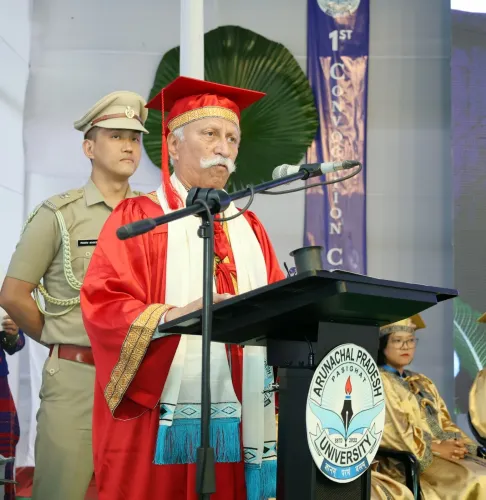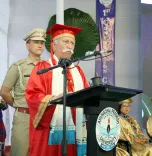Essential for Fortifying India's Maritime Commerce: Sarbananda Sonowal on Replacing Colonial Legislation

Synopsis
Key Takeaways
- Carriage of Goods by Sea Bill, 2024 replaces colonial law.
- Aims to enhance India's maritime commerce.
- Introduction of the Indian Ports Bill, 2025.
- Focus on integrated port development.
- Strengthens legal framework for stakeholders.
New Delhi, March 28 (NationPress) Union Minister Sarbananda Sonowal, while introducing the Carriage of Goods by Sea Bill, 2024 to replace the colonial-era Carriage of Goods by Sea Act, 1925 in the Lok Sabha, emphasized that the enactment of this new Bill will greatly enhance India’s legal framework for maritime trade.
The Union Minister stated, "The approval of the Carriage of Goods by Sea Bill in the Lok Sabha signifies a vital advancement in reinforcing India’s legal structure for maritime commerce. It not only boosts investor confidence but also positions India as Viksit Bharat."
Minister Sonowal also presented the Indian Ports Bill, 2025, which aims to unify legislation related to port management, promote comprehensive port development, and improve the ease of conducting business in the maritime sector.
The Bill aims to maximize the use of India’s extensive coastline by establishing and empowering state maritime boards for effective management of ports beyond the major ones.
Additionally, it plans to create the Maritime State Development Council to support structured growth and development within the port sector.
A significant advantage of this Bill is its simplified language and structure, enhancing accessibility for stakeholders, particularly Indian exporters, importers, and shipping professionals.
While preserving the essential legal framework, the Bill aligns with modern drafting practices, decreasing ambiguities and lowering the risk of potential litigation.
This legislation enables the government to swiftly adapt to changing international maritime conventions.
It also ensures transparency and accountability by instituting parliamentary oversight on executive notifications (Clause 10).
The legislation formally abolishes the outdated 1925 Act, signifying a decisive move away from colonial legal remnants and embracing a contemporary Indian maritime legal identity.
This aligns with the government’s broader vision of simplifying laws, enhancing the ease of doing business, and fostering a globally competitive shipping ecosystem.
Regarding the introduction of the Indian Ports Bill, Minister Sonowal remarked, "The presentation of the Indian Ports Bill, 2025, in the Lok Sabha is a revolutionary step toward modernizing India’s port governance and maritime infrastructure. By unifying laws, empowering State Maritime Boards, and establishing the Maritime State Development Council, the Bill paves the way for integrated port development and enhanced ease of doing business. With a strong emphasis on safety, security, and environmental sustainability, this reform is poised to elevate India’s global competitiveness in the maritime sector."
The Indian Ports Bill tackles essential issues such as pollution control, disaster management, emergency response, security, safety, navigation, and data management at ports.
It also aims to ensure India’s adherence to international obligations and maritime conventions.









